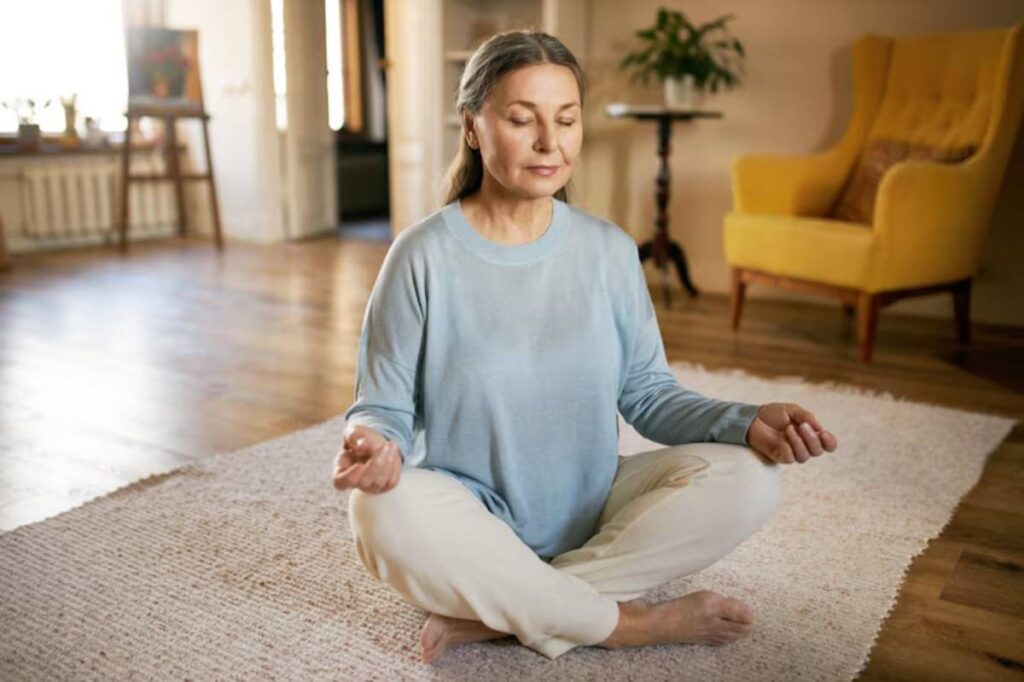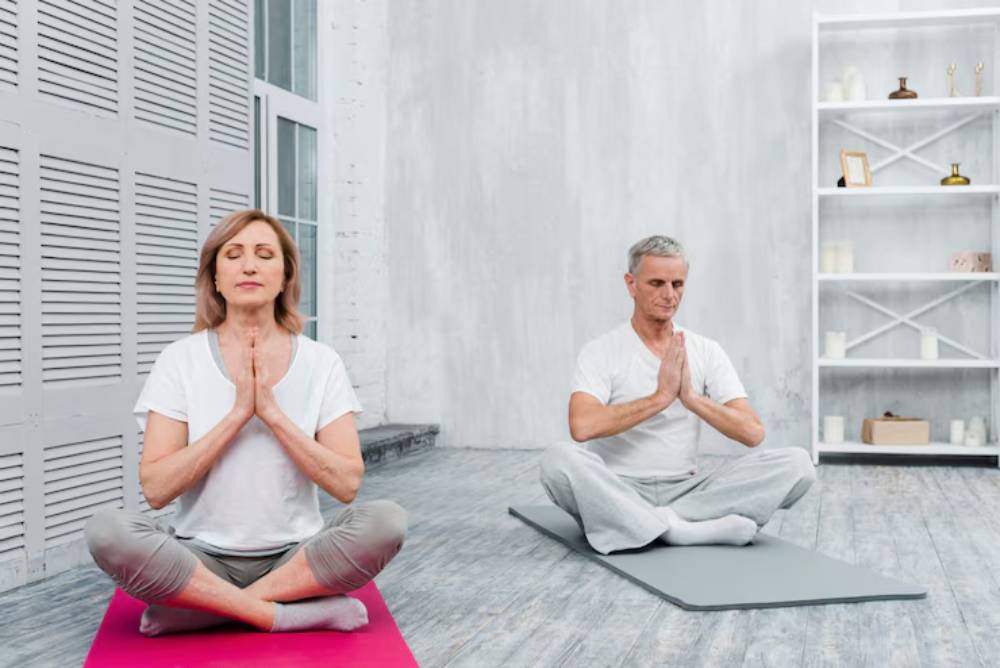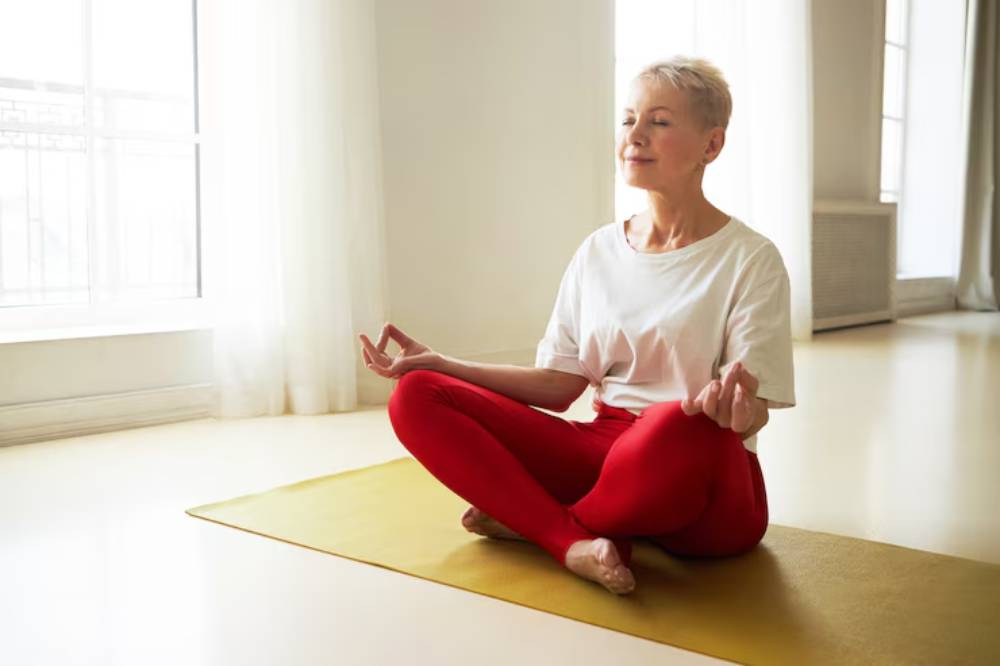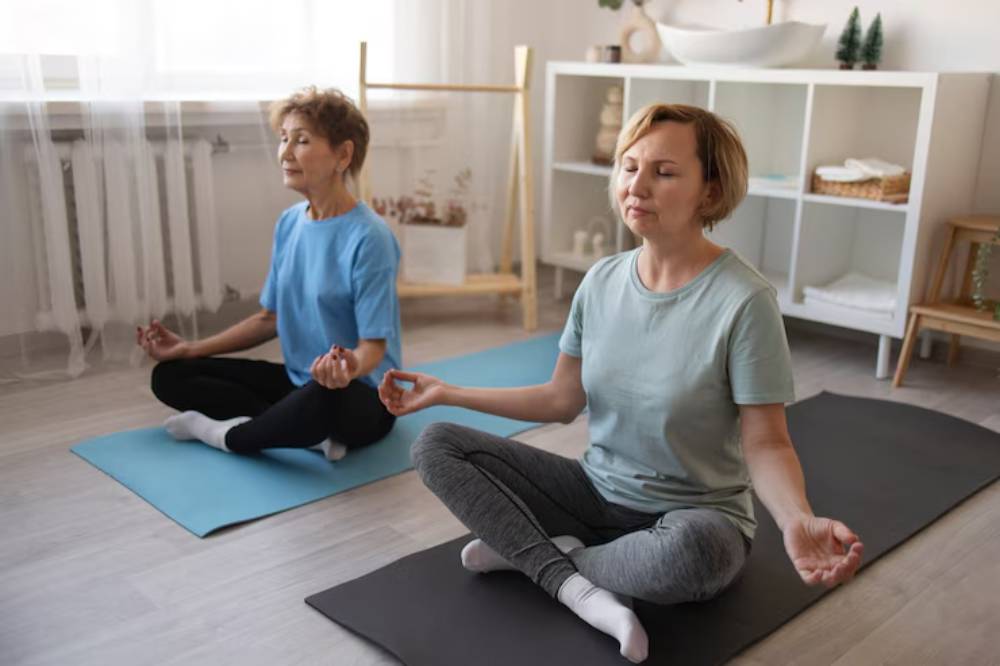The Health & Wellness Blog

Meditation Techniques for Seniors: Enhancing Mental Well-being
Today, mental well-being is vital, especially for seniors, in our fast-paced world. As we get older, keeping our mental health strong can be tough. This is due to changes in lifestyle, health problems, and social factors. One powerful tool that has gained popularity for its profound impact on mental well-being is meditation. This ancient practice has many benefits, especially for seniors. Regular meditation can significantly improve their quality of life. In this blog, we’ll look at meditation techniques for seniors. We’ll focus on how these practices can boost mental well-being.
Many people misunderstand meditation. They think you need to be fit or flexible to practice it. However, meditation is an inclusive practice that can be adapted to suit the needs and abilities of seniors. This guide is for everyone, from beginners to experts. It offers helpful insights into senior meditation and mindfulness. You can start your journey toward better mental well-being.
Key Benefits of Meditation for Seniors
Why It Matters
Meditation isn’t just a trend. It’s a practice backed by science. It offers many benefits for mental health. Seniors can benefit greatly from meditation. It helps boost brain function, lowers stress, and improves mental health. Here are some key reasons why meditation is particularly relevant for seniors:
- Improved Cognitive Function: As we age, cognitive decline becomes a concern. Meditation can boost attention, memory, and overall brain function. This helps seniors stay sharp mentally.
- Stress Reduction: Retirement, health worries, and shifting social dynamics can raise stress levels. Meditation provides a way to manage stress effectively, promoting a sense of calm and relaxation.
- Better Emotional Health: Meditation boosts mindfulness, helping you control emotions and build resilience. Seniors who practice meditation often report feeling more balanced and less prone to mood swings.
- Better Sleep Quality: Many seniors struggle with sleep disturbances. Meditation helps you sleep better. It promotes relaxation and cuts down anxiety. This leads to more restful nights.
- Increased Social Connection: Group meditation sessions help build community and a sense of belonging. They can reduce feelings of loneliness and isolation that some seniors face.
Real-Life Applications
Consider the story of Margaret, a 72-year-old retiree who struggled with anxiety and sleep issues. After going to a local senior meditation class, Margaret saw big improvements in her mental health. She felt more relaxed, her anxiety levels decreased, and she enjoyed better sleep quality. This change boosted her mental health and improved her quality of life. Now, she can enjoy her hobbies and social activities more fully.
Additional Expert Tips & Common Mistakes to Avoid

Best Practices for Senior Meditation
To maximise the benefits of meditation, seniors should consider the following best practices:
- Start Small: Begin with short meditation sessions. Slowly increase the duration as you become more comfortable with the practice. Even five minutes a day can make a significant difference.
- Choose a Comfortable Position: Meditation does not require sitting cross-legged on the floor. Seniors can meditate in a chair, on a cushion, or even lying down, as long as they are comfortable.
- Focus on Breathing: Breathing is a fundamental aspect of meditation. Concentrate on your breath, allowing it to anchor your attention and calm your mind.
- Be Consistent: Consistency is key to reaping the benefits of meditation. Try to meditate at the same time each day to establish a routine.
- Explore Different Techniques: Many meditation techniques exist. These include guided meditation, mindfulness meditation, and loving-kindness meditation. Experiment with different styles to find what resonates with you.
Common Mistakes and Misconceptions
- Expecting Immediate Results: Meditation is a practice that requires patience. Don’t expect quick results. Focus on the process and small steps to improve your mental well-being.
- Judging Your Practice: It’s common to feel distracted during meditation. Rather than judging yourself, acknowledge the distraction and gently bring your focus back to your breath.
- Overcomplicating the Practice: Meditation is simple at its core. Avoid overcomplicating it with unnecessary rituals or expectations.
- Neglecting Physical Comfort: Physical discomfort can be a distraction. Ensure that you are in a comfortable position to fully engage in the meditation practice.
Advanced Insights / Expert Recommendations

Exploring Different Meditation Techniques
Seniors can improve their mental well-being by trying different meditation techniques that fit their needs:
- Mindfulness Meditation: This practice involves focusing on the present moment without judgment. It helps you notice your thoughts, feelings, and sensations. This boosts mental clarity and emotional balance.
- Guided Meditation: In guided meditation, a teacher or recording leads you through the practice. This can be particularly helpful for beginners or those who prefer structure in their meditation sessions.
- Loving-Kindness Meditation: This practice helps you build compassion and love for yourself and others. It is also known as Metta meditation. It can enhance emotional well-being and foster positive social connections.
- Body Scan Meditation: This technique focuses on each part of the body. It helps you relax and notice your bodily sensations. It can be beneficial for managing pain and tension.
- Transcendental Meditation: This involves the use of a mantra or repeated word to settle the mind into a state of profound rest. It is known for reducing stress and promoting inner peace.
Unique Industry Perspectives
Experts in geriatric mental health stress that meditation should be customised for seniors. This includes considering factors such as mobility, cognitive function, and personal preferences. Incorporating mindfulness into daily activities, like mindful walking or eating, can boost the benefits of meditation.
Conclusion: Embrace Meditation for a Healthier, Happier Senior Life

Meditation is a powerful tool for enhancing mental well-being, particularly for seniors. Seniors can boost their cognitive function and reduce stress by adding meditation to their daily routine. It also helps improve emotional health. Finding the right meditation practices for your mental well-being is a personal journey. It’s key to discover what resonates with you.
As you embark on this journey, remember that meditation is not about perfection but about progress. Embrace the journey. Be patient with yourself. Enjoy the changes meditation can bring to your life.
Check out local meditation classes or online resources to begin your journey. Share your experiences with others and consider inviting friends or family members to join you in this practice. Let’s build a community of mindful seniors. This will boost mental well-being and enrich lives.
In conclusion, meditation is a way to improve mental health and stay active. It’s open to everyone, no matter their age or ability. Seniors who embrace this practice can live a more fulfilling life. They can experience peace, clarity, and joy. So, take a deep breath, find a comfortable position, and begin your meditation journey today.









